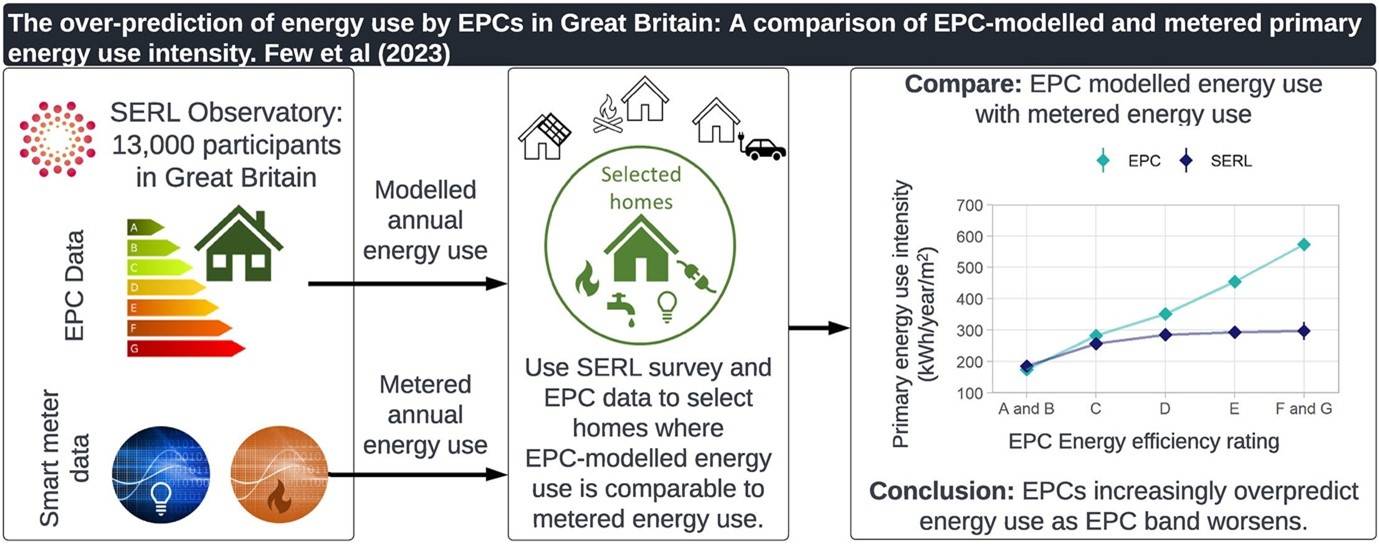Energy Performance Certificates in Great Britain overpredict energy use, study finds
24 April 2023
A new study comparing Energy Performance Certificate (EPC) -modelled and metered primary energy use intensity has found that EPC’s overpredict energy use by as much as 48%, leaving a gap that could have a significant impact on net zero policy, research, and industry.

Researchers from UCL Energy Institute’s Smart Energy Research Lab (SERL) have completed an analysis of 1,374 gas-heated British households comparing the difference between the Energy Performance Certificate (EPC)-modelled and smart-meter measured annual energy use on a like-for-like basis.
The study found that as the EPC rating band of a property worsens, the EPC is increasingly likely to overpredict the energy use. For band C properties it was found that primary energy use intensity was overpredicted by 8%, with the gap increasing to 48% for bands F and G. Because of the detailed data available via the SERL Observatory, researchers were able to control for confounding factors which have often been present in work comparing EPCs with metered energy use. Firstly, homes without metered energy use were excluded (e.g. oil boilers and wood-burning stoves). And secondly, researchers found that the behaviour of occupants is unlikely to fully explain the discrepancies, with the differences persisting in homes that match occupancy, thermostat set-point, and whole-home heating assumed in the EPC-model.

As EPC ratings are a vital tool residential energy sector, the gap between EPC-modelled and metered energy use could have a significant impact on policy, research and industry.
Jessica Few, Research Fellow and lead-author, said:
“EPCs are one of the main tools being used to support government policy to reduce domestic energy consumption in the UK, so it’s important that we understand how they are performing in practice. Further research is needed to fully understand the causes of the discrepancy, and the implications with regards to policy outcomes. ”
 Close
Close

